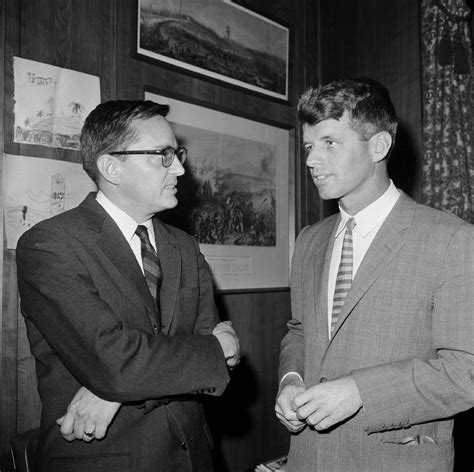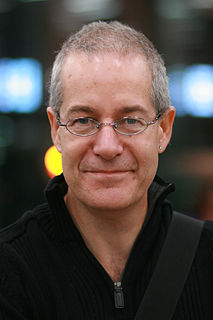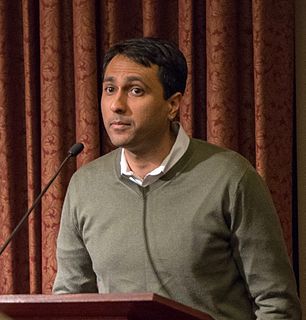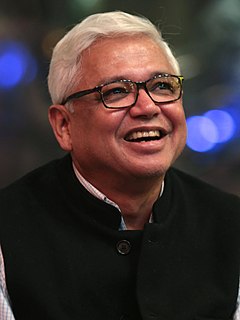A Quote by Friedrich August von Hayek
The idea of social justice is that the state should treat different people unequally in order to make them equal.
Related Quotes
Many people came out and said, 'Boy I'd love to make a film that way.' Well, borrow some money, get some people together - you can get people to work for nothing, just treat them right, treat them as human beings, not stars, give them all an equal share, make them feel a part of what they're doing. There's no big secret to it.
I'm still committed to the socialist idea because the socialist idea, correctly understood, includes the principles of freedom and social justice. It also includes the recognition of the value of democracy. When we speak about social justice, it means that freedom should be used not only in the interest of profit but also in the interest of the advancement of the people who create all values.
From the fact that people are very different it follows that, if we treat them equally, the result must be inequality in their actual position, and that the only way to place them in an equal position would be to treat them differently. Equality before the law and material equality are therefore not only different but are in conflict with each other; and we can achieve either one or the other, but not both at the same time.
The Stoic discipline of action, which is connected to the virtue of justice, says that we ought to treat others fairly and we should engage in social and political activity. This is further supported by the Stoic idea of cosmopolitanism, and by the famous "circles of concern" identified by Hierocles, who counseled that we should refer to other people as brothers and sisters, to constantly remind ourselves that we are members of the same human family.
The State, on the other hand, both in its genesis and by its primary intention, is purely anti-social. It is not based on the idea of natural rights, but on the idea that the individual has no rights except those that the State may provisionally grant him. It has always made justice costly and difficult of access, and has invariably held itself above justice and common morality whenever it could advantage itself by so doing.
The idea is that to grasp an idea like equality or justice, you can't look at the equal and just or unjust things in the world around you, you have to somehow ascend to or maybe remember some kind of idea of equality and justice and this would be a Platonic form, and it would be different from the things that partake in the form.
While our heart for social justice grows out from the gospel, social justice by itself will not communicate the gospel. We need gospel proclamation, for as much as people may see our good deeds, they cannot hear the good news unless we tell them. Social justice, though valuable as an expression of Christian love, should, especially as a churchwide endeavor, serve the goal of gospel proclamation.
How far does one combine resistance to over-control with social justice, i.e. tolerable living for people in general? We are too selfish to be trusted, if left free, to give away enough to make people comfortable enough to give them a chance. Yet if all this is ordered for us, as to some extent it has to be, it so soon leads to tyranny. It is a very difficult problem. If only human beings had more pity, unselfishness, and justice and didn't need coercion to treat each other decently.
Since I was born I remember my dad and my mom always embracing diversity and differences among people and that being the core of America and happiness and all those different things. And that goes along with equality and you should treat everybody equal and be fair and not judge people and dislike people because they are different, and embrace and enjoy people because of the differences they have.
A social entrepreneur is somebody who knows how to make an idea reality, and one of the great ideas of our time is pluralism. Can people from different backgrounds live together in mutual peace and loyalty? And what we need is a generation of young social entrepreneurs who know how to make that great idea reality in an historical moment where religious extremists are, frankly, making their idea reality.
[T]hat state, love, is so utterly alien to that other idea without which we cannot live as human beings --- the idea of justice. It is only because love is so profoundly the enemy of justice that our minds, shrinking in horor from its true nature, try to tame it by uniting it with its opposite [...] in the hope that if we apply all the metaphors of normality, that if we heap them high enough, we shall, in the end, be able to approximate that state metaphorically.




































